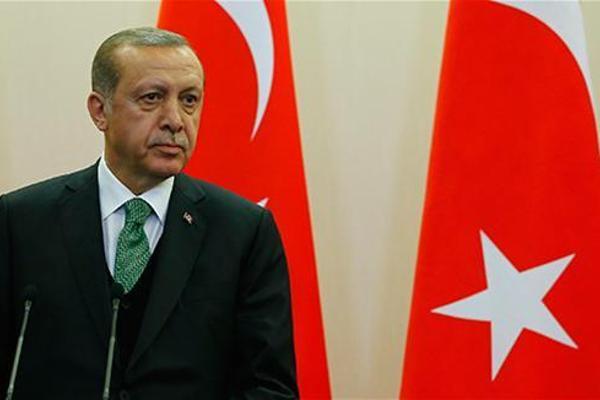Safe zones to solve 50 percent of Syrian conflict: President Erdoğan
ANKARA


AA photo
Four de-escalation zones are slated to be established in Syria, President Recep Tayyip Erdoğan said May 3, claiming that the move would solve 50 percent of the problem in the country.“A region centered in Idlib, a part of Aleppo near Idlib, the al-Rastan region in Homs, rural Damascus, rural Daraa and rural Quneitra are included” in these zones, Erdoğan said speaking to a group of journalists aboard his plane after flying back from a meeting with Russian President Vladimir Putin in the Black Sea resort of Sochi.
Moscow floated the idea for “de-escalation zones” in several areas in Syria during the leaders’ meeting, according to sources.
The president described the plan as a “new concept” and distinct from Turkey’s previous proposals for terror-free safe zones.
Erdoğan said he had personally shown Putin a photograph purportedly showing Russian forces in Syria with Syrian Kurdish militia that Ankara deems to be a terror group. Putin promised that Russian weapons were not ending up in the hands of the Peoples’ Protection Units (YPG) and vowed to investigate the picture, he said.
Turkey and Russia have also championed peace talks taking place in the Kazakh capital Astana but the negotiations hit a snag on May 3 when pro-Ankara Syrian rebels said they were suspending their participation after air strikes by government forces.
But Erdoğan said the issue had been solved after the intervention by Turkey’s intelligence chief, Hakan Fidan.
“Mr. Hakan immediately stepped in, had discussions and the opposition were again satisfied to take part in the talks…So Astana is going to continue,” he stated.
Turkey and Russia are deeply entangled in the war in Syria, with troops from each country currently on the ground in the country. Ankara also supports various Syrian opposition factions while Moscow backs President Bashar al-Assad’s forces.
Russian representatives at the Astana talks presented the rebels with a proposal for four “de-escalation zones” in Syria where the warring sides would be separated by “security lines.” The Astana talks are proximity talks, with Syrian government representatives and the rebels separately meeting with Russian officials and other representatives.
In Sochi, Putin said Russian and Syrian government jets would halt flights over the specified zones if all sides respected the cease-fire.
Syria’s Foreign Ministry said on May 4 that Damascus “fully backed” a Russian initiative to establish four areas of cease-fire in the war-torn country.
In a phone conversation on May 2, Putin outlined a plan to U.S. President Donald Trump for “deconflict zones” in four areas: Idlib province in northern Syria; a zone north of Homs in central Syria; an area east of Damascus known as Eastern Ghouta; and the southern region that borders Jordan, the Washington Post reported.
The plan reportedly calls for the physical separation of combatants in the areas and foresees the possible establishment of buffer zones that would be staffed by U.N. peacekeeping troops or another international monitoring force.
